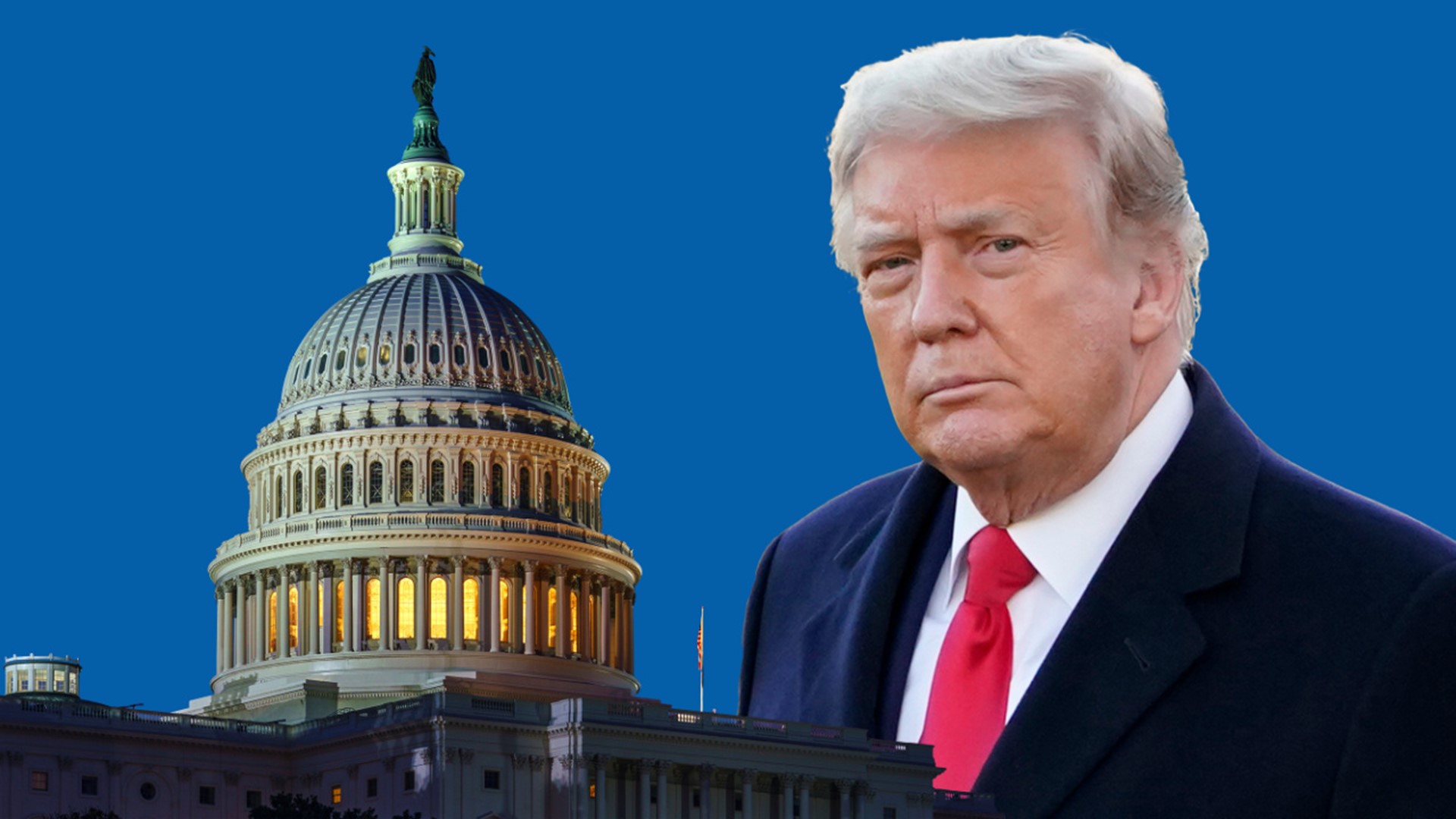WASHINGTON — Six months after the Jan. 6 attack on the Capitol, and after House Democrats pushed for a committee investigation, many on social media are questioning whether former President Donald Trump could be forced to testify.
The Verify team spoke with numerous political experts, and examined the bill itself, to break down whether a subpoena is likely, and whether this could compel the former president to speak in front of Congress.
THE QUESTION
Could the House committee investigating the Capitol riots subpoena GOP lawmakers or Donald Trump, and would they be forced to testify?
THE SOURCES
- David A. Super, Professor of Law and Economics at Georgetown University Law School
- Michael Thorning, Associate Director of Governance at Bipartisan Policy Center
- HR 503, "Establishing the Select Committee to Investigate the January 6th Attack on the United States Capitol"
THE ANSWER
The bill explicitly allows for the committee chair to issue subpoenas for whoever they deem relevant. However, these subpoenas would likely be met with lengthy legal battles that could outlast the committee itself.
Legal experts said that it remains unclear whether the subpoena of a former president would be successful if the legal battle were to play out.
WHAT WE FOUND
On June 30, just one week before the six-month anniversary of the attack on the U.S. Capitol, the House passed a resolution by a vote of 222 to 190 creating a select committee to investigate the events of that day.
On social media, many questions remain about how this committee will be run, and whether current and former lawmakers may be forced to testify.
"Will the 1/6 commission get Trump to testify?" one Twitter user asked.
Others pushed for GOP lawmakers, like House Minority Leader Kevin McCarthy, to be forced to testify.
The Verify team reached out to political and legal experts to break down what actions are allowed by this committee.
The committee was formed on June 30 with the passage of HR 503. This bill allows for House Speaker Nancy Pelosi to select 13 members, five of whom are "appointed after consultation with the minority leader."
"I think the word consultation is important here," David Super, a professor at Georgetown Law School, said. "It doesn't mean that [Pelosi] has to take his suggestions. She can disregard them."
According to the language of HR 503, the purpose of the select committee would be as follows:
Investigate the facts, circumstances, and causes relating to the domestic terrorist attack on the Capitol...
Identify, review, and evaluate the causes of and the lessons learned from the domestic terror attack on the Capitol...
Issue a final report to the House containing such findings, conclusions, and recommendations for corrective measures…
Could Trump be subpoenaed? Would he be forced to take the stand?
Michael Thorning from the Bipartisan Policy Center said that the committee would be able to pursue subpoenas, as decided by the chair.
"The committee does have subpoena power," Thorning said. "And potentially could subpoena former President Donald Trump or members of Congress to testify before the committee."
Both experts agreed that it remains unlikely that Trump would be forced to testify.
"Congress' subpoena power has been very difficult to enforce in recent years," Thorning said. "Congress has often taken those battles to court. That can take quite some time."
The experts estimate that these legal battles could last months if not years, possibly out-lasting the committee itself.
"If I were advising the House Majority, I would tell them not to subpoena him, because all they would get is some theater in court," Super said. "They wouldn't actually get any testimony."
Thorning agreed that the prospect of the former president walking the halls of Congress to testify is unlikely.
"The committee certainly could subpoena and attempt to force former President Trump to testify," he said. "But the potential for legal challenges that draw it out may mean that it never happens."

